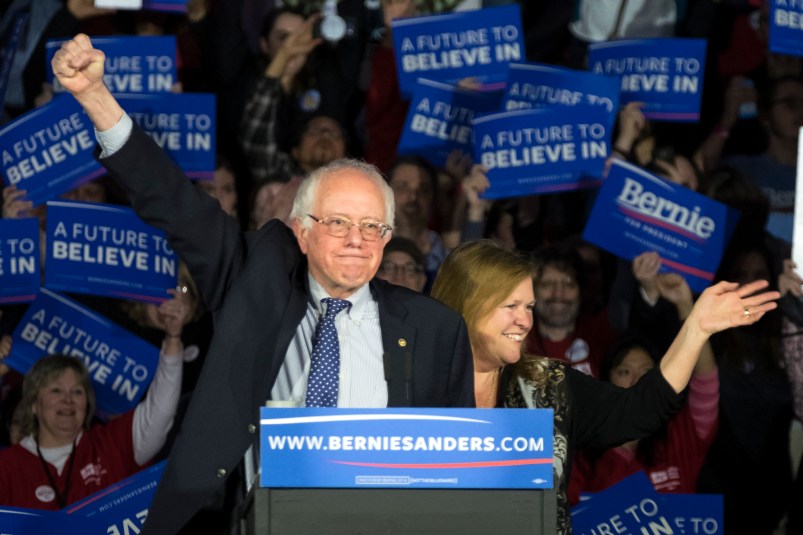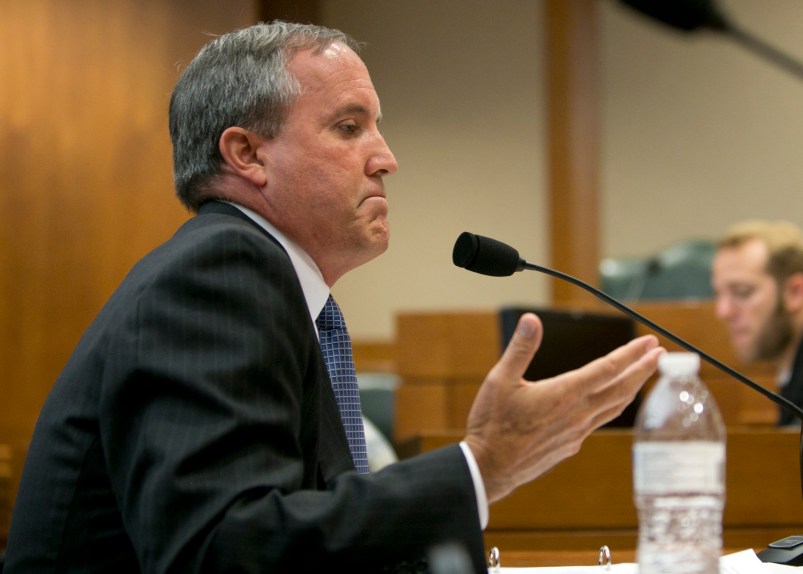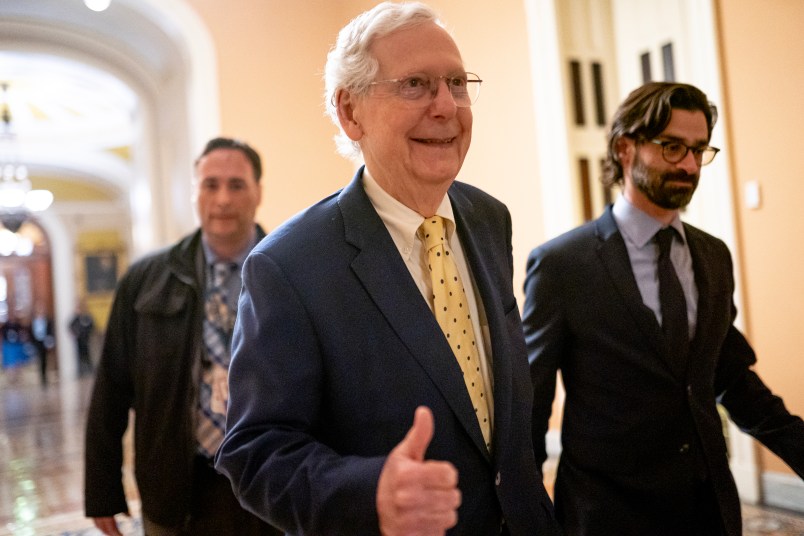I just cast an absentee ballot for Sen. Bernie Sanders (I-VT). His grumpiness reminds me so much of Irving Howe on a bad day that not voting for him would be more or less unthinkable. I am grateful to him, if only for making the name Bernie less uncool. But everyone from my wife to The Washington Post has been trying to talk sense to me. I owe them an explanation.
First, what I didn’t vote for. I am not supporting Sanders because of single-payer, which I consider no better than (and possibly inferior to) Obamacare. Yes, we need to break the monopoly pricing Obamacare awarded to the big pharmaceutical companies; yes, leaving Medicaid to the states left millions of potentially uninsured people at the mercy of cynical Republican governors. Both flaws with the Affordable Care Act need to be corrected. Ultimately, though, healthcare must migrate from fee-for-service insurance to “capitation”: a single, average payment for each patient in some kind of managed care system, which encourages physicians and patients to cooperate and share information intensively. Otherwise costs will not be brought down and quality, up. Obamacare seems more likely than single-payer to make the management in “managed care” both more local and subject to the benefits of competition.
So I think of Sanders’s single-payer plan as a statement of an ideal: that healthcare is a right. I don’t think his plan will be implemented as designed, if ever, and promoting the ideal does not ruin what’s been accomplished.
Second, I do not buy into (if that’s the word) Sanders’s class rage—you know, at the alleged greed of “millionaires and billionaires.” New York Magazine columnist Jonathan Chait is right that Democrats should not get distracted by materialist simplifications about human nature that have seduced everyone from Thomas Hobbes to Georgi Plakhanov. Whatever is wrong with capitalism, it’s not personal, it’s business. There are even good reasons for global free trade agreements. Chait may be right that Sanders is prone at times to “a rigidly economistic frame of mind,” at least when he talks about inequality. For their part, “working people” can be as guilty of reflexive tribalism and political economic dogmatism as, say, neoconservative intellectuals. I suspect that, anyway, Sanders agrees with Oscar Wilde that socialism of the old kind requires “too many evenings.”
What I do believe, against the grain, is that Sanders’ supporters are more realistic than Clinton’s, though ironically it is Clinton’s “realism” that is part of what’s driving people away from her: the ideological ricochets, the claim to be pragmatic, which translates into embarrassingly transparent shifts in rhetoric. I don’t need to be told a Republican win would be a disaster; I just don’t see how Clinton is the safer bet. This election, like the one in 2012, is taking shape within a long predicted crisis, which the country is finally feeling in the wake of a technological revolution that has made unskilled labor all but obsolete in American manufacturing. And then there is the 2008 financial melt-down, which reinforced the idea that an economy already producing inequalities owing to education, birth, robotics, and outsourcing, has been made hyper-unequal by fraud, lobbies, and gamed financial networks. Ordinary people are feeling insecure, if not humiliated.
“The energy of this campaign,” The New Yorker’s George Packer writes, “has been generated on the margins, by two kinds of Americans: younger, better-educated, more urban ones on the Democratic side; older, more working-class, whiter ones on the Republican side.” The former are worried about paying for education, the latter about paying for having none. In this context, Sanders is saying the three-sided obvious: make college affordable, make infrastructural investments to soak up unemployed workers, make the very rich pay. The rest—a higher minimum wage, work against climate change and guns, immigration reform, Middle East caution—are checked-boxes for him.
But wait, isn’t Clinton saying the same thing? And isn’t she the one with the better chance of getting things done? Packer adds along these lines that Sanders supporters promote “higher taxes, single-payer health care, and free college education without demanding that he explain how he’ll get those proposals through a highly ideological Republican Congress.” Fair enough. The point is, no conceivable Democratic president could get even pale versions of what’s necessary through any conceivable Republican Congress. The only hope is to throw the bums out: marginalize the Republicans’ carnivalesque xenophobia by making the Democratic party’s economic populism more attractive, and eventually second nature, to “younger, better-educated, more urban” voters, as well as “older, more working-class, whiter” ones.
Clinton is implying that she, coming from a tradition of triangulation, can work with Congress. Sanders is saying, “No you can’t, for God’s sake; let’s run against them and beat them; we are the majority, which can only grow with the people I bring in.” This is what Sanders really means by a “revolution”: mobilize now for future elections as a kind of Democratic answer to the Tea Party, but bigger and more resilient.
“If he does win it is going to be such a shock to the system that we will not stop the fight the day he wins, we will pursue it vigorously,” Sanders adviser Tad Devine told The Huffington Post. If Congress balks, “we will turn the midterm elections in 2018 into the largest referendum in the history of midterms,” he added. “We will take [Republicans] on frontally, and trust me, [Bernie] will be up for the fight.” This may be an outsider’s hope, but its prospects are more like those of Ronald Reagan in 1980 than George McGovern in 1972.
Sanders, after all, is 74. He’s obviously not doing this for the glory. If he wins the White House, he won’t likely be running again in 2020. Meanwhile, he could bring millions to the Democratic party’s next generation of supporters. He’ll hammer away at electoral reform, and call attention to the spectacle of politicians flattering tycoons. He’ll expand the party’s base of support, especially in advance of the 2020 election, when the state houses—that is, congressional district maps—will be decided. Anyway, that’s the theory and I’m sticking to it until somebody can show how it isn’t true.
But wait, again! What about being a socialist, a Jew—what about Clinton’s huge popularity among African-Americans and Latinos, which Sanders lacks. What about the first woman president? What I ask myself is this: Can I imagine, after a long clarifying campaign, the person who voted for Obama in 2012 and who would not vote for Sanders in 2016? Socialist, at least in the way Sanders defines it, sounds about as radical as Canadian. Secular Jew? More unsettling than “rhymes with Osama,” pious Mormon, or serial adulterer?
Moreover, if Sanders takes a woman onto his ticket, he’d pave the way for her in 2020, and help mitigate the disappointment of Clinton’s loss now. Her advantage with African-Americans is important. But these groups are, for historic reasons, enthusiastic more about the Democratic Party than about her. If Sanders gets the nomination, where will they go? To the party that rails against Latino immigration and suppresses the black vote? Some might stay home if Sanders leads the ticket, but as many as the new, younger voters who’ll come in? If Rubio gets the Republican nomination, he may hive off significant Latino votes. But would he take more from Sanders than from Clinton? (Moshe Dayan once said that he does not answer a question with more than two “ifs” in it, and this paragraph has three. But there is nothing terribly daring about the speculations.)
Many uncertainties remain, I know, and the biggest is arguably Michael Bloomberg, who might run if Clinton seems on the verge of losing. He could, if he wins a couple of big states, throw the election into the House, which would be a horror. Clinton may rally, and if she proves more convincing than Sanders, more fit for the time, my argument will fall to the ground. What I’m fairly confident of is that Sanders is tapping into real transformational currents in a way that Clinton is not. It’s not just impatience with the players but with the game. Like the Mad Hatter, he insists on the difference between saying what you mean and merely meaning what you say. I’m betting that most Democrats will be grateful.









